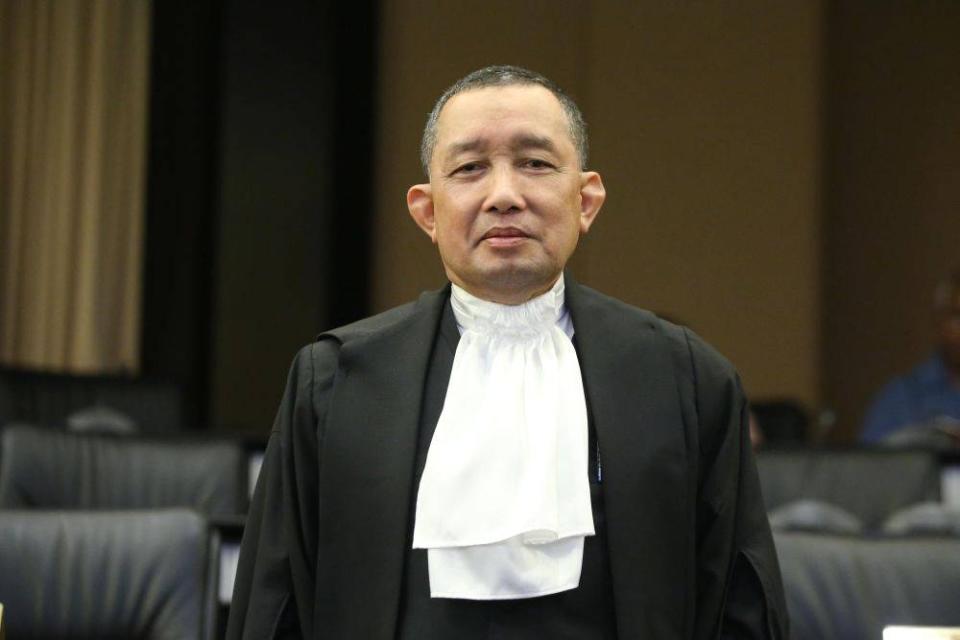Sarawak lawyers: Malaysia's courts may face constitutional crisis if BM translation overrides Federal Constitution's English text

KUALA LUMPUR, Jan 13 — The courts in Malaysia could potentially have a constitutional crisis on their hands if the Malay or Bahasa Malaysia (BM) translation of the Federal Constitution is made the authoritative text to override the original text in the English language, the professional body representing lawyers in Sarawak said today.
Gurvir Singh Sandhu, president of the Advocates Association of Sarawak (AAS), firmly indicated that the professional body does not agree with the proposal to have the BM translation of the Federal Constitution be made authoritative.
Referring to the attorney general's Monday announcement of plans to propose for the BM translation to be made authoritative, Gurvir said: “The Advocates Association of Sarawak views such plans with much concern as the association was never consulted over such intentions.”
“Nonetheless, in order to avoid any ambiguity, the association associates itself with the position that such proposals should not be made,” he said in voicing out disagreement on the proposal.
Currently, the Federal Constitution's English text — which is also the language it was drafted in since Malaya's independence in 1957 and Malaysia's formation in 1963 — is the authoritative text in Malaysia.
Gurvir noted that the interpretation of the English text of the Federal Constitution had been decided on by the courts, and pointed out that reference could be made to court decisions in other countries which also use the English language while no similar reference can be made if the BM translation is made authoritative.
“The current format of the Federal Constitution has been tried and tested in the Courts of Law, where there are landmark cases decided mainly upon the interpretation of singular words.
“English is widely used in Commonwealth countries, therefore, one is able to draw upon decided cases of other Commonwealth countries as legal precedent to assist to determine any ambiguity over the Federal Constitution. However, due to the lack of jurisprudence in the national language as Malaysia is the only country using Bahasa Malaysia, one would not have such similar privileges,” he said.
“Another significant point is that a number of other agreements like the Federation of Malaya Independence Act 1957 and of particular interest to Sarawak, the Malaysia Agreement 1963, the Inter-Governmental Committee (IGC) Report 1962, are all written in English.
“There is a foreseeable situation that the courts in Malaysia will be flooded with considerable constitutional crises over such plans,” he added.
Gurvir noted that the Sarawak premier had recently said the Sarawak state government shall continue to use both English and BM as its official languages.
Gurvir then said the AAS was comforted with the fact that Article 161(3) of the Federal Constitution would prevent amendments to the Federal Constitution — on the use of the English language in Sabah and Sarawak — without consent from Sabah and Sarawak.
“We take solace upon the position that the Federal Constitution cannot be amended in such a manner as proposed by the attorney general in view of Article 161(3) of the Federal Constitution which requires the consent of Sabah and Sarawak before such amendments are made to the Federal Constitution.
Gurvir made these remarks in his speech at the Opening of the Legal Year (OLY) 2023 of the High Court of Sabah and Sarawak which was held in Miri, Sarawak today. A copy of his speech was made available to the Malay Mail.
The AAS is the Sarawak counterpart to the Malaysian Bar (which represents lawyers in Peninsular Malaysia and the federal territories), and was the host of the event today.
Separately, the Sabah Law Society — which is the Sabah counterpart to the Malaysian Bar — had also expressed concerns regarding the proposal to make the BM translation of the Federal Constitution authoritative.
The Sabah Law Society highlighted the risks of the actual meaning of words in the Federal Constitution’s original text being “lost in translation” in the BM text, saying that it could even risk impacting the constitutional rights guaranteed to Sabah and Sarawak without even going through Parliament and without the constitutionally-required consent from Sabah and Sarawak.

On Monday, AG Tan Sri Idrus Harun announced plans to propose for the Malay translation of the Federal Constitution to be made the authoritative version — under Article 160B — which will override the original English text if there are any conflicts or discrepancies between the two texts, but said this is subject to the Yang di-Pertuan Agong’s approval. ― Picture by Azinuddin Ghazali
On Monday, AG Tan Sri Idrus Harun announced plans to propose for the Malay translation of the Federal Constitution to be made the authoritative version — under Article 160B — which will override the original English text if there are any conflicts or discrepancies between the two texts, but said this is subject to the Yang di-Pertuan Agong’s approval. He made the announcement at the Opening of Legal Year 2023 held at Putrajaya International Convention Centre.
Article 160B states that: “Where this Constitution has been translated into the national language, the Yang di-Pertuan Agong may prescribe such national language text to be authoritative, and thereafter if there is any conflict or discrepancy between such national language text and the English language text of this Constitution, the national language text shall prevail over the English language text.”
Currently, the English text for the Federal Constitution is the authoritative text in Malaysia, with the latest reprint dated October 15, 2020 of the Malay translation carrying this note on its very first page: “Teks ini HANYALAH TERJEMAHAN oleh Jabatan Peguam Negara bagi Federal Constitution. Melainkan jika dan sehingga ditetapkan sahih di bawah Perkara 160B Perlembagaan Persekutuan, teks ini bukan perundangan”.
The note in English means: This text is ONLY A TRANSLATION by the Attorney General’s Chambers for the Federal Constitution. Unless and until prescribed as authoritative under Article 160B of the Federal Constitution, this text is not law.



